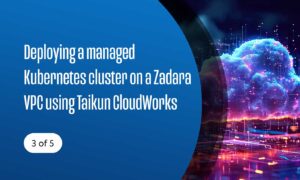Amazon recently announced Provisioned IOPS EBS volumes and EBS-Optimized instances. These two new features make Amazon the public cloud provider with the most advanced storage capabilities.
In addition to EBS, there is another storage option for AWS customers who require high performance and advanced storage capabilities: Zadara Storage.
In general EBS is easier to use than Zadara, as it is native to AWS and can be provisioned from the AWS cloud console. However, there are some unique features of Zadara Storage that make this storage option an appealing alternative for some use cases.
This article is intended to be a guideline for determining in which use cases Zadara Storage should be employed.
Features of Zadara not present in EBS
Features unique to Zadara VPSA include the ability to:
- Choose SSD drives
- Choose SAS 15K RPM drives
- Assign full drives to a particular user
- Create volumes with more than 2000 IOPS (5K or 10K IOPS)
- Mount volumes as block devices (iSCSI) or file systems (NFS)
- Share a single volume between multiple EC2 machines (even on different AZs)
- Utilize clustering software in EC2 (MS SQL cluster, Linux HA, etc.)
- Share data on volumes between multiple EC2 machines (even on different AZs)
- Encrypt data with the user controlling the password for the keys.
- Create volumes larger than 1TB (multi TBs)
- Create different RAID types based on the customer’s application
- Instant Snapshots with writeable Clones
- Remote Replication across AWS regions (i.e. AWS East to West )
- SSD caching
Use cases for Zadara Storage
The following use cases, not currently covered by EBS, are supported by Zadara Storage:
- when more than 2K IOPS per volume are needed.
- when a high availability scheme (e.g., clustering) is needed, requiring access to a single volume from multiple EC2 machines, even from different Availability Zones.
- when NAS as a service is needed for sharing data between multiple EC2 machines.
- when security measures are required to encrypt the data and/or have dedicated drives.
- when the amount of data used is multiple TBs and it makes more sense to have your own drives and full control of your storage environment.
- when the user needs protection against EBS failures (replicating between EBS and Zadara).
- when the user wants the same capabilities on different cloud providers, like AWS and Dimension Data
- Remote replication between regions for Disaster Recovery purposes
- Need advanced snapshots with writeable clones



